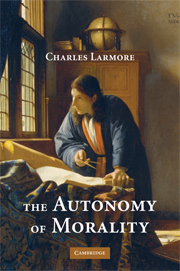2 - Back to Kant? No Way
Published online by Cambridge University Press: 05 June 2012
Summary
In 1798, Kant was challenged to reveal his thoughts about the recent claims by Karl Leonhard Reinhold and Johann Gottlieb Fichte that they had recast the true spirit of Kant's philosophy in a more perspicuous and better-argued form. “There is an Italian proverb,” Kant replied, “May God protect us especially from our friends, for we shall manage to watch out for our enemies ourselves.” Karl Ameriks quotes this remark near the beginning of his provocative book, Kant and the Fate of Autonomy. There is no mistaking his fundamental agreement about the relationship between the Critical Philosophy and the various movements of the succeeding decades, usually labeled “German Idealism,” which claimed inspiration from Kant at the same time as they sought to go beyond him.
Kant, of course, did not live long enough to become acquainted as well with the writings of Schelling and Hegel. Nor can it be said that these four post-Kantians marked out similar paths in their attempts to move beyond the inadequacies they perceived in Kant's thinking. Nonetheless, Ameriks maintains, they were at one in failing to appreciate the complexities of Kant's own transcendental idealism, and their failure had a common source. It was Reinhold's image of Critical Philosophy, his diagnosis of Kant's aspirations and failings, that set the agenda for the developments that came afterward. Ameriks' book is meant as a “prolegomenon to a rehabilitation of orthodox Kantianism” (p. 269).
- Type
- Chapter
- Information
- The Autonomy of Morality , pp. 33 - 46Publisher: Cambridge University PressPrint publication year: 2008
References
- 1
- Cited by



